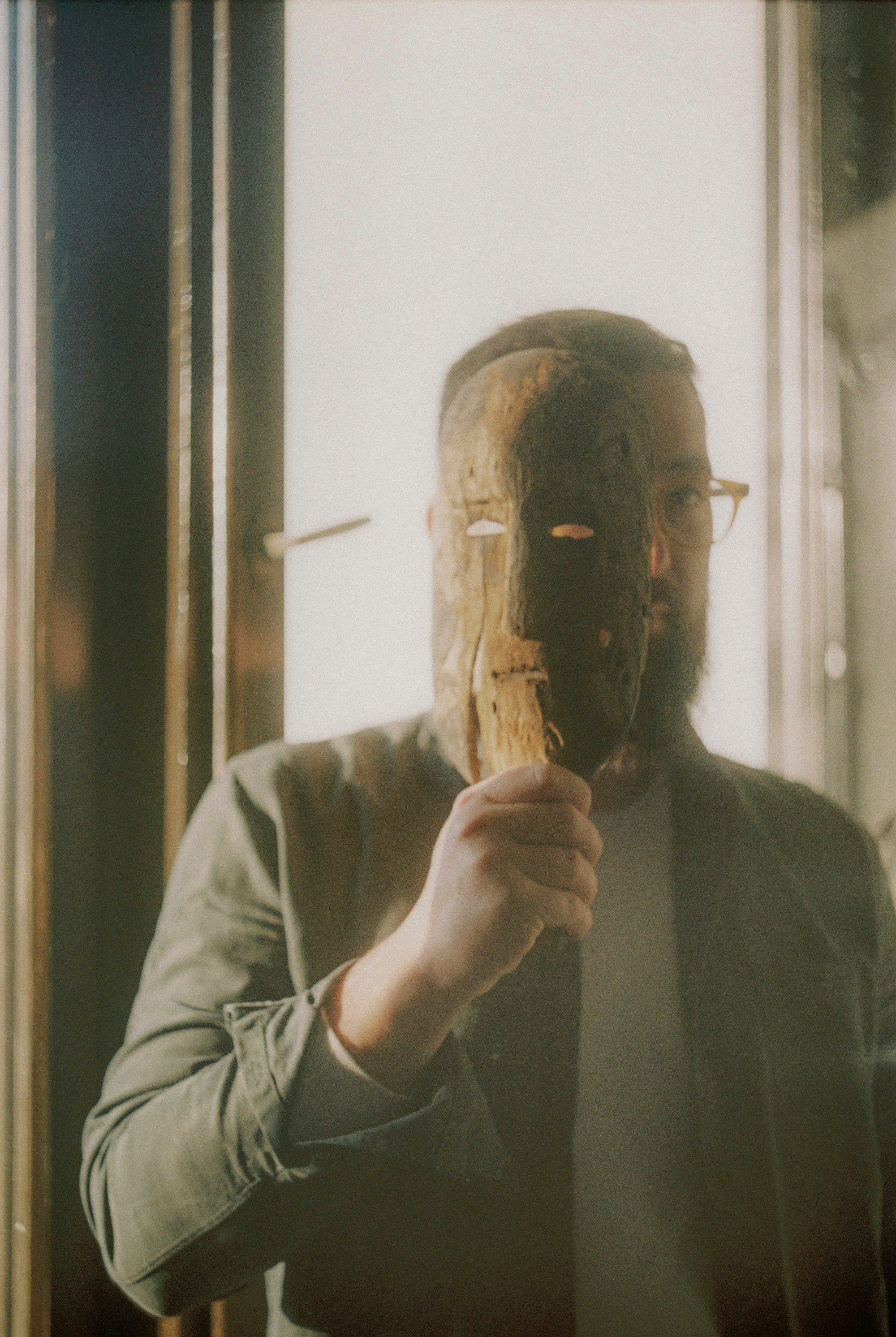What is Hallucination?

Hallucinations are sensory experiences that are perceived as being real even though they are not. They can occur in any of the five senses, such as hearing, sight, smell, taste, and touch. It's important to note that hallucinations are not caused by external stimuli, meaning they are not real. People experiencing hallucinations can feel isolated and are often highly anxious due to their inability to control them.
Hallucinations often occur in people with mental health issues, such as schizophrenia, dementia, bipolar disorder, and substance use disorder. As a result, understanding hallucinations and how to manage them is particularly important for those dealing with these conditions. Learning about hallucinations can also help family members and friends better support those affected by them.
Hallucinations are a disturbance in the perception of reality. They involve seeing, hearing, or feeling things that are not actually there. While hallucinations have long been a source of fascination and confusion for people, they can also be quite frightening and difficult to manage.
Hallucinations generally fall into two main categories: auditory and visual. Auditory hallucinations, also known as “hearing voices”, involve hearing sounds or voices that do not exist. These can range from whispers to loud voices, and can include both words and sounds. Visual hallucinations involve seeing things that are not actually present, such as shapes, objects, or people. Both types of hallucinations can be experienced in a variety of forms, from simple flashes of light or noises, to complex visions or conversations.
While there is no one cause of hallucinations, they can often be linked to mental illness, drug use, sleep deprivation, trauma, stress, and other medical conditions. It is important to remember that not all hallucinations are symptoms of an underlying condition – some people may experience them without any prior issues or history of mental health problems.
What Causes Hallucinations?
Hallucinations can have various causes, including mental illnesses, drugs, and stress. Mental illnesses that can cause hallucinations include schizophrenia, bipolar disorder, depression, anxiety disorders, and dementia. Some medications, such as antipsychotics, can also lead to hallucinations. Stimulants, such as cocaine and ecstasy, can cause people to experience hallucinations, as can some types of hallucinogenic drugs. Stress can also trigger hallucinations in some people, which can be a sign of post-traumatic stress disorder (PTSD).
It is also important to note that there are situations where hallucinations can be caused by something physical, such as a brain tumor, epilepsy, or stroke. Therefore, it is important to talk to a doctor if you are experiencing hallucinations, to rule out any potential physical health problems.
Diagnosing Hallucinations
When someone experiences hallucinations, it’s important to understand the underlying cause. Diagnosing the condition involves both physical and psychological examinations. A doctor may first perform a physical exam, such as blood tests or an MRI scan, to rule out any physical conditions that could be causing the hallucinations. If no physical causes are found, a doctor may perform a psychological evaluation to determine if the hallucinations are due to a mental disorder.
The psychological evaluation typically consists of a series of questions about the person’s medical history and personal experiences. The doctor may also use standardized tests to assess the person’s mood, thought patterns, and behavior. This helps the doctor identify any mental illnesses that could be responsible for the hallucinations. In some cases, the doctor may refer the patient to a psychologist or psychiatrist for further evaluation.
If a mental health disorder is identified as the cause of the hallucinations, the doctor will work with the patient to develop a treatment plan. The plan may include medication, psychotherapy, and lifestyle changes. With treatment, the patient should be able to manage their symptoms and improve their quality of life.
Treatment for Hallucinations
Hallucinations can be scary and distressing, and it is important for those experiencing them to seek help. While there is no “cure” for hallucinations, there are a variety of treatments available that can help to reduce their intensity and frequency.
Medication is often prescribed to those suffering from persistent or severe hallucinations; antipsychotics are generally given as they can help to ease the symptoms associated with the condition. It is important to note, however, that medication will not get rid of the hallucinations completely, and may come with side effects.
Talking therapies such as cognitive behavioural therapy (CBT) can also be beneficial for those who experience hallucinations. CBT involves talking to a therapist about your thoughts and feelings, and learning techniques to help manage them. It can create a step by step plan to reduce the distress caused by the hallucinations and help develop coping mechanisms.
Other treatments such as mindfulness and relaxation techniques can also be recommended, as they can help to decrease stress and focus on the present moment.
It is important to note that any treatment should be tailored to the individual and their specific needs. A combination of medications, talking therapies, and other techniques can be the most effective approach in managing and reducing the effects of hallucinations.
Coping Strategies
Living with hallucinations can be a difficult and overwhelming experience, but there are ways to cope. Here are some useful techniques that can help people to manage their hallucinations and improve their quality of life.
Mental Strategies
People can learn to recognize their hallucinations and distinguish them from reality. It is important to remind yourself that the hallucinations are not real and to focus on activities in the present moment. Acceptance and validation of your own experiences can also help to decrease the intensity of the hallucinations.
Relaxation and Stress Management
Learning relaxation techniques such as deep breathing, progressive muscle relaxation and mindfulness can help to reduce stress levels and lessen the intensity of hallucinations. Additionally, engaging in regular physical activities such as walking and yoga can relieve tension and improve mental wellbeing.
Cognitive Behavioral Therapy
Cognitive behavioral therapy (CBT) is a type of talking therapy which can help people to identify and challenge negative thought patterns which may be causing or contributing to their hallucinations. CBT can also help people to develop better strategies for managing stress and anxiety.
Social Support and Companionship
Surrounding yourself with supportive people who understand and believe what you are going through can make an enormous difference. Joining a support group or engaging in activities with like-minded people can provide companionship and valuable advice from those with shared experiences.
Prevention of Hallucinations
Hallucinations can be distressing and disruptive, so it is understandable that people want to prevent or reduce the risk of experiencing them. Although it is not always possible to prevent hallucinations, there are some useful strategies you can try.
Manage Stress
Stress can increase the frequency and intensity of hallucinations, so it’s important to manage stress levels. This can include activities such as mindfulness meditation, relaxation exercises, and physical exercise. It is also important to get enough sleep and eat a balanced diet.
Avoid Drugs and Alcohol
Drugs and alcohol can increase the risk of experiencing hallucinations, so it is best to avoid using them. If you feel the urge to use, talk to someone you trust, such as a family member or a counsellor.
Get Treatment
If you have mental health issues, such as depression, anxiety, or schizophrenia, seek prompt treatment. There are many effective treatments available to help manage symptoms, including medications and talking therapies.
Identify Triggers
Some people find that certain situations or activities can make their hallucinations worse. Identifying and avoiding these triggers can help to reduce the risk of experiencing hallucinations.
Seek Support
Talking to family and friends about your experiences can provide a great source of support. There are also support groups and online forums where you can connect with other people who are dealing with similar issues.
Hallucinations are a type of sensory experience and can occur in any of the five senses. People may experience visual, auditory, tactile, olfactory, or gustatory hallucinations. Oftentimes, these kinds of experiences can be frightening, disorienting, and overwhelming. It's important for those experiencing hallucinations to seek professional help in order to better understand their condition and find appropriate treatment.
In conclusion, it is important to remember that hallucinations are real experiences that may be caused by a number of different circumstances. Knowing the causes of hallucinations, how they are diagnosed and treated, and learning coping strategies can help people better manage their symptoms and improve their overall quality of life. If anyone is concerned about experiencing hallucinations, it is important to talk to a doctor or medical professional in order to get the necessary help.
FAQs
When it comes to questions about hallucinations, there are a few that tend to come up most often. Here are some of the most common questions, and their answers.
- What is a hallucination? A hallucination is an sensory experience that occurs when someone perceives something that does not actually exist. Hallucinations can involve seeing, hearing, feeling, or smelling something that isn’t there.
- What causes hallucinations? Hallucinations can be caused by a range of factors, including mental illness, drugs, alcohol, and extreme stress.
- Are hallucinations dangerous? Hallucinations can be frightening, but they are usually not dangerous in themselves. However, people who hallucinate may be at an increased risk of harm if they do not seek treatment.
- How are hallucinations treated? Treatment for hallucinations depends on the underlying cause. It may include medications, talking therapies, lifestyle changes, or a combination of these approaches.
- Can hallucinations be prevented? In some cases, it may be possible to prevent or reduce the risk of experiencing hallucinations. Some strategies that may help include avoiding drugs and alcohol, getting enough sleep, and managing stress levels.
Glossary
Hallucinations are defined as false perceptions of the senses. They are not real but can be experienced as vivid and intense as if they were real. Commonly used terms related to hallucinations include:
- Perception: The process of becoming aware of something through the senses.
- Delusion: An irrational belief that is not based in reality.
- Psychosis: A mental disorder characterized by a disconnection from reality.
- Auditory Hallucination: A type of hallucination where one hears sounds or voices that are not actually present.
- Visual Hallucination: A type of hallucination where one sees images or objects that are not actually there.
It is important to understand these terms in order to have a better understanding of what hallucinations are, how they are caused, and how to cope with them.
You might also like this article:






